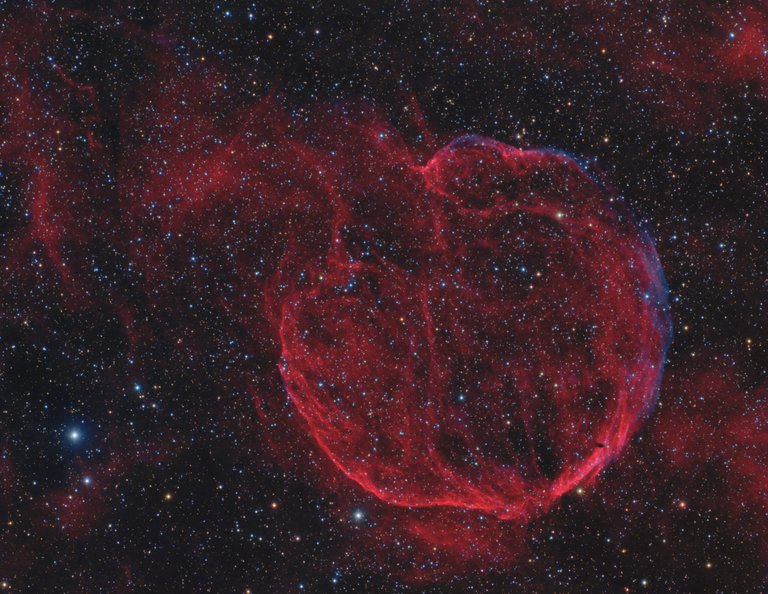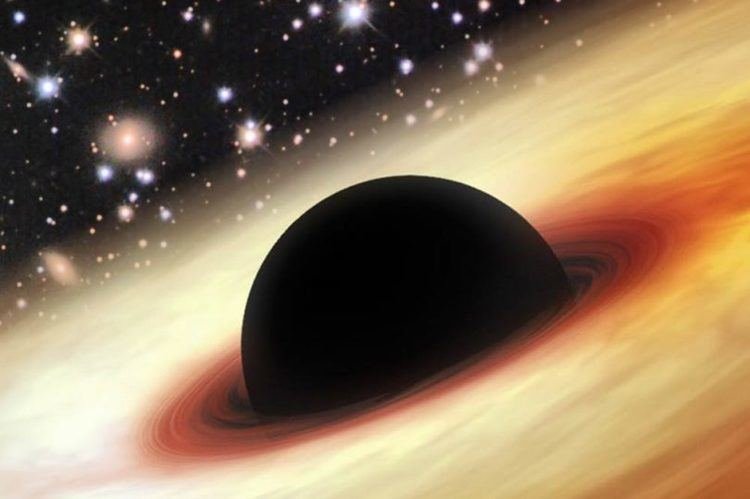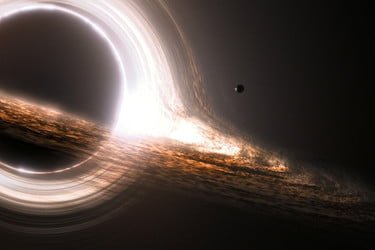With the VLT (telescope), astronomers have managed to find an enormous black hole located bang at the center of Holmberg 15A. This galaxy pertains to the galaxy cluster Abell 85 classified as a supergiant elliptical galaxy. The object ultimately dominates the entire region of the cluster.

The black hole had been discovered years later but its dimensions remained still unclear. After new studies, NASA has reported that this black hole is actually an ultramassive radiation machine in such galaxy.
This kind of black holes have been called supermassive black holes and they are defined as the largest in the universe.
Typically, these objects can be as massive as 100,000 or 10 billion suns, and always operate in the center of galaxies.
But these galaxies, the ones located in galaxy clusters, generally contain black holes with masses over 10 billion times that of the Sun. Scientists dub them as ultramssive black holes, and there are not many of them found out there in the universe. Or at least, we only have a few of confirmed examples.
This time, scientists have confirmed a new ultramassive black hole, known as Holmberg 15A, which resides in a galaxy-clustered area called Abell 85.

This huge monster was seen and measured by Kianusch Mehrgan and his team who work for the Max Planck Institute for Extraterrestrial Physics and University Observatory Munich in Germany.
Scientists obtained the view of this ultramassive hole in 2017 and 2018. The team used the VLT’s Multi-Unit Spectroscopic Explore to get wide-field spectroscopic data of Holmberg 15A. They focused on Abell 85, one of the brightest galaxies.
The galaxy in question is located 700 million light-years away from Earth in the constellation Cetus. Compared to our Galaxy’s black hole which is only 4 million suns, Holmberg 15A has a mass of approximately 40 billion suns.
Scientists are amazed because they have found the most massive black hole directly detected on record.
Behind Holmberg 15, NGC 4889 and NGC 1600 are considered the two other most massive black holes with 21 billion times that of the Sun and 17 billion suns respectively.

This black hole expected to be much smaller, but it is up to 9 times larger according to these studies. This data is confusing given the galaxy’s bulge stellar mass.
Congratulations @ernestoluisgom1! You have completed the following achievement on the Steem blockchain and have been rewarded with new badge(s) :
You can view your badges on your Steem Board and compare to others on the Steem Ranking
If you no longer want to receive notifications, reply to this comment with the word
STOPVote for @Steemitboard as a witness to get one more award and increased upvotes!